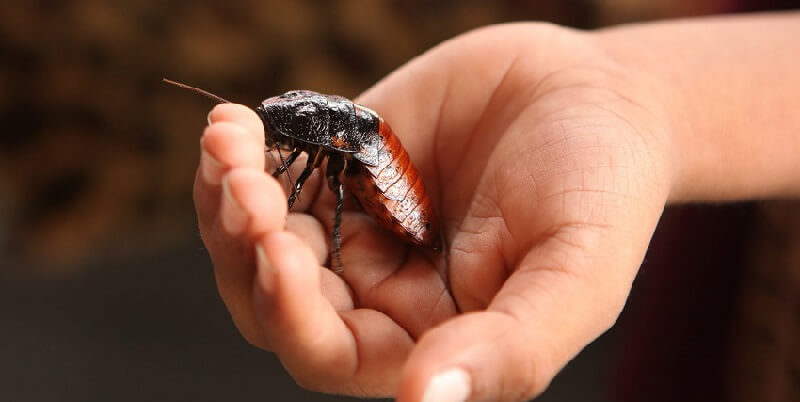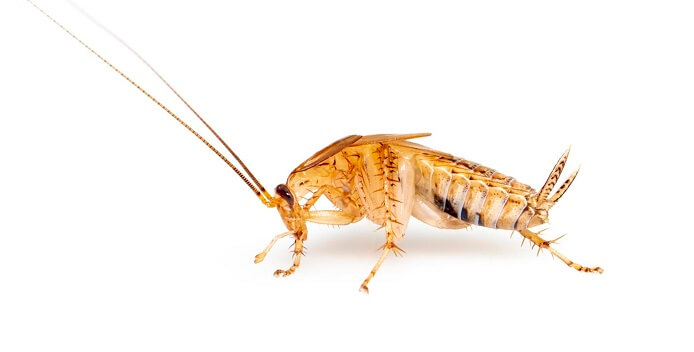Are Roaches Smart?

Cockroaches are among the most maligned insects on Earth. Their nocturnal habits, rapid movements, and propensity for infesting human habitats can evoke disgust and fear.
However, behind those skittering legs and hardy exoskeletons lies an intelligence that has both fascinated and surprised researchers. This article delves into the question: “Are roaches smart?”
Cockroach Intelligence at a Glance
| Aspect | Cockroach Behavior | Research Insights |
|---|---|---|
| Learning and Memory | Can associate smells with food and remember these associations. | A study found that roaches conditioned to associate a certain scent with food continued to show a preference for that scent even after the food was no longer present. |
| Navigation | Demonstrates spatial awareness and can find efficient paths to resources. | Using controlled experiments, researchers observed that cockroaches could quickly navigate mazes and find their way to food sources or hiding spots. |
| Group Behavior | Engages in collective decision-making about foraging and resting spots. | In crowded conditions, roaches exhibited tendencies to follow each other, leading to more efficient resource location. |
| Adaptability | Evolves resistance to threats, including insecticides. | The rapid evolution of insecticide-resistant roaches is a significant challenge for pest control. |
A Brief Overview
At a basic level, intelligence can be defined as the ability to learn from experiences and apply knowledge to modify one’s behavior. By this definition, cockroaches indeed demonstrate intelligence. Here are some ways their “smartness” has been observed:
- Learning and Memory: Studies have shown that cockroaches can learn to associate certain smells with food and can remember these associations for weeks.
- Navigation: Cockroaches exhibit impressive navigational skills. They can quickly determine the most efficient path to safety or a food source, even in unfamiliar terrains.
- Group Behavior: While cockroaches are not social insects like ants or bees, they do exhibit group behaviors. For example, they can “decide” where to forage or rest as a group, demonstrating a form of collective decision-making.
- Adaptability: Perhaps their most renowned feature, cockroaches is incredibly adaptable. They have evolved to thrive in a variety of environments, from tropical forests to urban homes. Their ability to resist various insecticides is a testament to their adaptability and resilience.

Why Are Roaches So Smart?
The perceived “intelligence” of cockroaches can be attributed to a combination of evolutionary pressures and their biology:
- Evolutionary Pressure: Over millions of years, roaches have had to adapt to various challenges, from predation to environmental changes. This long history of adaptation has equipped them with behaviors that increase their chances of survival.
- Complex Nervous System: While not as complex as vertebrates, cockroaches have a sophisticated nervous system that allows them to process information quickly. This aids in their rapid response to threats and their ability to navigate their environment.
- Survival Needs: Cockroaches are scavengers who must constantly explore and adapt to find food. This need to forage efficiently in various environments could have driven the development of behaviors that we perceive as “smart.”
- Social Interactions: While not truly social, the interactions between cockroaches can be complex. Living in groups has advantages, such as increased chances of locating food or avoiding predators. This necessitates a certain level of communication and coordination.
Do Roaches Have Personalities?
Yes, cockroaches do have personalities. According to a study published in the journal Proceedings of the Royal Society B, individual roaches display consistent behaviors which can differ from other individuals within a group. The researchers concluded from their observations on how roaches find shelter that cockroaches indeed exhibit personalities.
How Long Is A Roaches Memory?
Cockroaches have a relatively short memory retention span. When headless insects were subjected to intense training, their memory lasted at most 2 or 3 days after the final training session. Meanwhile, isolated segments of the insects showed an even shorter memory retention, lasting less than one day.
Conclusion
While cockroaches might not be winning any popularity contests among humans, dismissing them as simple-minded pests does a disservice to their cognitive abilities.
Like many other creatures, roaches have evolved intelligence mechanisms tailored to their specific environments and challenges. Understanding their intelligence offers insights into the evolutionary pressures they’ve faced and might also inform more effective pest control strategies in the future.

James E. Butkovich, Pest control maven with a knack for eco-friendly & Chemical solutions. Blogger with a mission to make homes pest-free, one post at a time.